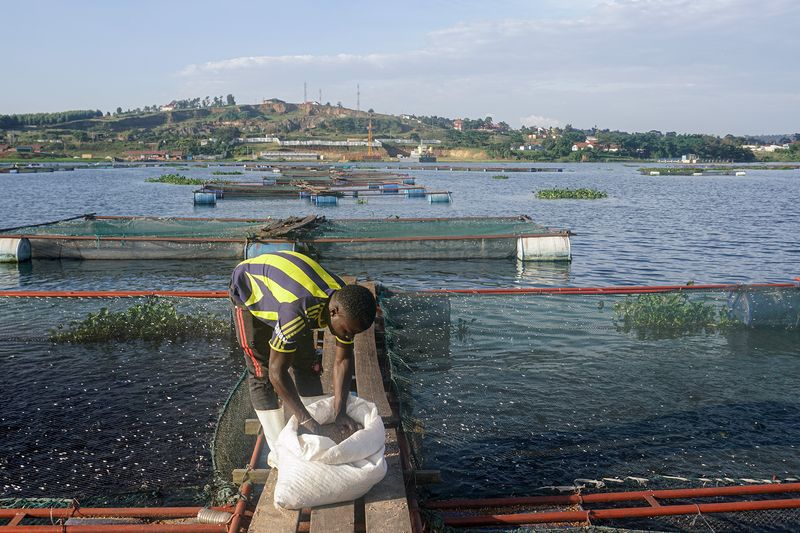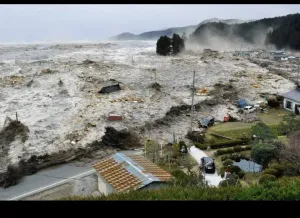
News
Researchers Warn Cage Fish Farming on Lake Victoria Threatens Biodiversity and Native Fish Genetics
A new study by a consortium of Ugandan and regional researchers has raised red flags over the rapid expansion of cage fish farming on Lake Victoria, warning that the practice poses significant ecological and genetic risks to native fish species and aquatic biodiversity.
Published on July 22 in the open-access Wiley Online Library, the scientific review titled “Nile Tilapia (Oreochromis niloticus L.) Cage Aquaculture in Africa: Potential Threats to Congeneric Fish Species and Advances to Detect Escapes” highlights the unintended consequences of Nile Tilapia cage aquaculture across African inland waters. The review, which brings together experts from Uganda, Kenya, and Austria, emphasises that while the practice boosts fish production, it may lead to biodiversity loss, genetic dilution, and ecosystem disruption if not properly regulated.
Nile Tilapia, locally known as ngege, is the dominant species used in Uganda’s aquaculture sector. However, the researchers warn that escaped farmed tilapia—whether intentional or accidental—are interbreeding with native species, potentially wiping out unique local adaptations that have evolved over centuries.
“Threats such as interspecific competition, disease transmission, and hybridisation, which are drivers of genetic diversity loss among native fish populations, have been reported,” the study notes.
Although there is limited direct evidence linking cage aquaculture to widespread hybridisation, genetic mixing between Nile tilapia and native Oreochromis species has already been observed in various African water bodies, including parts of Uganda. The authors stress that genetic substructures—variations within the same species caused by historical isolation or localised pressures—are already emerging in populations in Lake Victoria and Lake Turkana, which could signal long-term genetic drift and loss.
Currently, only Uganda, Kenya, and Egypt have functional aquaculture regulations, but researchers say the enforcement remains inadequate. In Uganda, they found that selective breeding programs for O. niloticus are poorly coordinated, with widespread inbreeding, unregulated broodstock exchange, and low genetic quality in hatcheries.
“There is an urgent need to institute regulatory frameworks that not only provide clear guidelines on aquaculture production but also balance between environmental conservation and economic sustainability,” the study recommends.
Cage aquaculture, which involves raising fish in floating net pens submerged in natural water bodies, gained popularity in Uganda and Tanzania around 2006. Its higher stocking densities and faster turnaround times have contributed to growing fish yields. However, the study warns that this short-term gain could come at the cost of long-term ecological damage, especially in fragile aquatic ecosystems like Lake Victoria.
Rumors in the mid-2000s that President Museveni had “sold” Lake Victoria sparked public backlash and drew attention to foreign investment and commercialization in Uganda’s fisheries. While those claims were never substantiated, concerns over the governance and environmental oversight of the lake’s resources remain potent.
The researchers also highlighted operational challenges in Uganda’s aquaculture sector, including high feed costs, water pollution due to urbanization, and vulnerability to predators. These are compounded by a lack of structured breeding programs, making the system even more vulnerable to genetic degradation.
To mitigate the looming risks, the study advocates for the development of advanced genetic monitoring tools, tighter regulation of broodstock movement, and region-wide collaboration on aquaculture policy. “As cage aquaculture continues to expand, proactive research, strict regulation, and continuous monitoring are essential to mitigate adverse genetic and ecological consequences while ensuring that aquaculture remains a viable and sustainable sector in Africa,” the authors warn.
The multi-institutional study was conducted by researchers from the Institute of Integrative Nature Conservation Research at BOKU University (Austria), Kachwekano Zonal Agricultural Research and Development Institute (NARO), Maseno University (Kenya), Makerere University, Bulindi Zonal Agricultural Research Institute (NARO), and the National Fisheries Resources Research Institute (NaFIRRI) – Kajjansi.
With Uganda’s aquaculture industry expected to grow in response to declining wild fish stocks and increasing demand for protein, the findings of this study serve as a critical reminder: sustainable growth must go hand-in-hand with ecological stewardship.














Marlene Luwedde
Leave a Comment
Your email address will not be published.